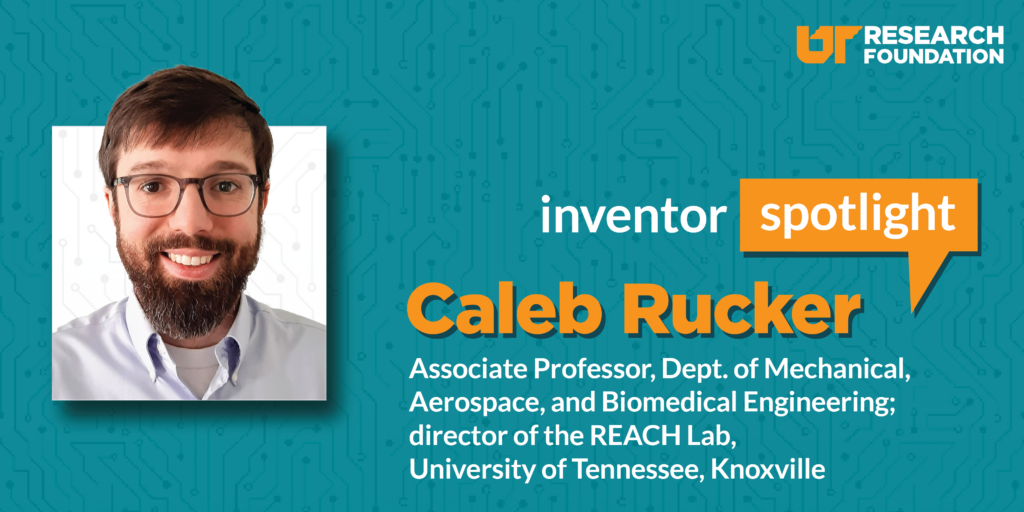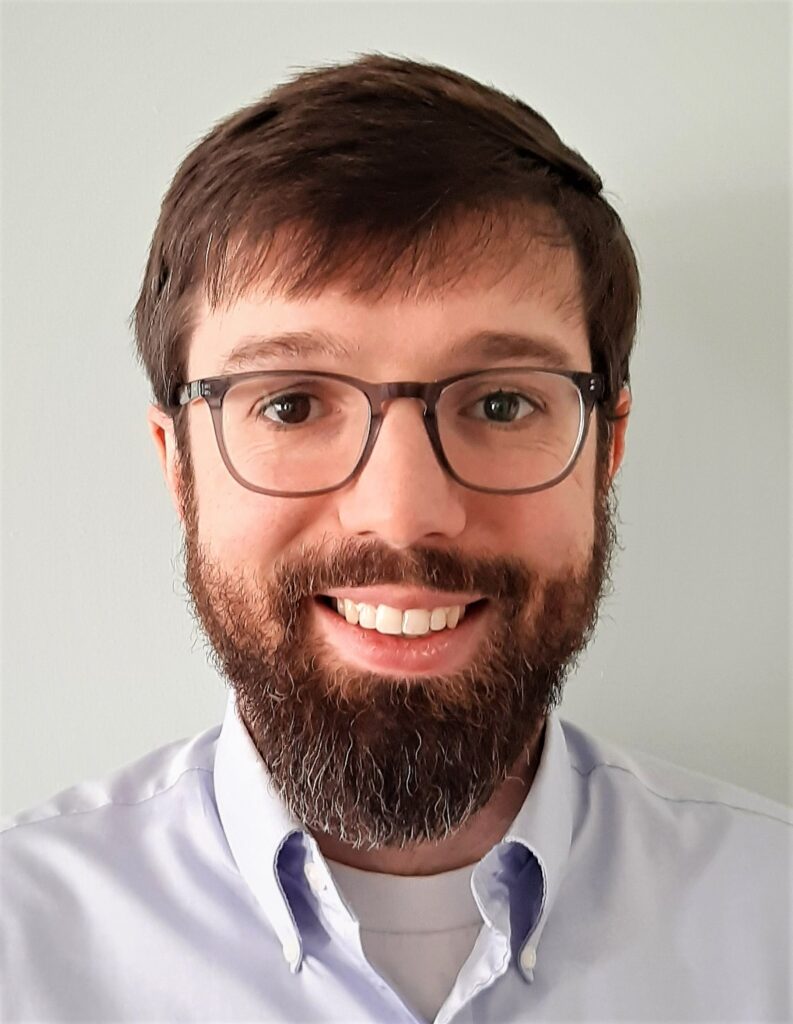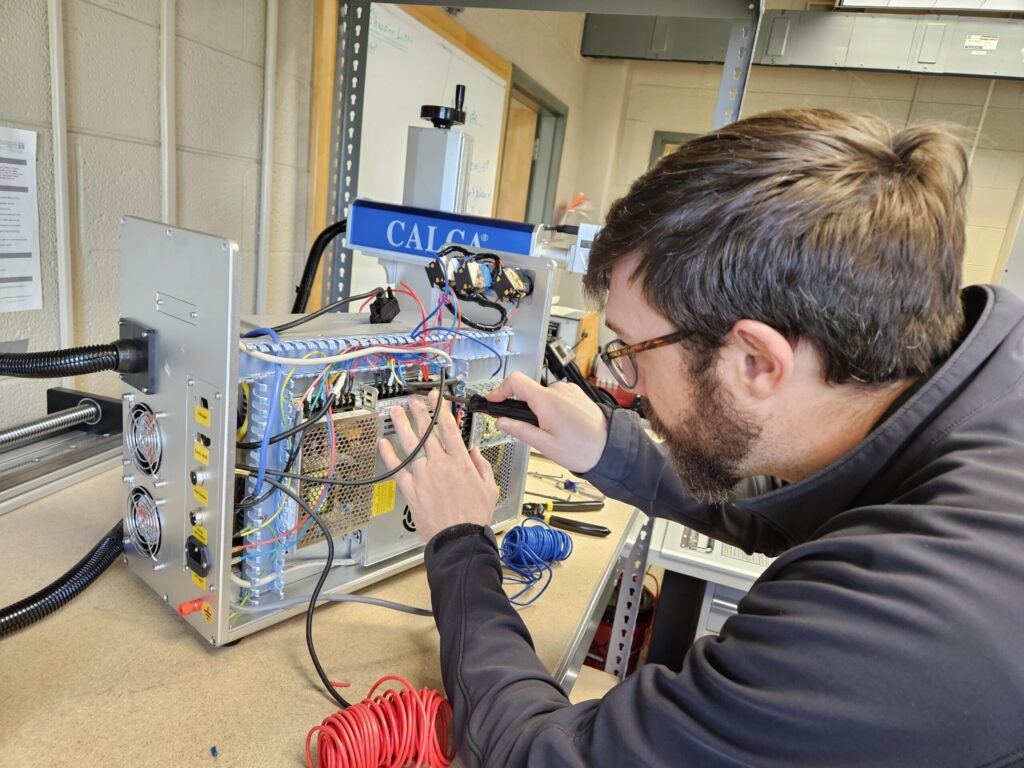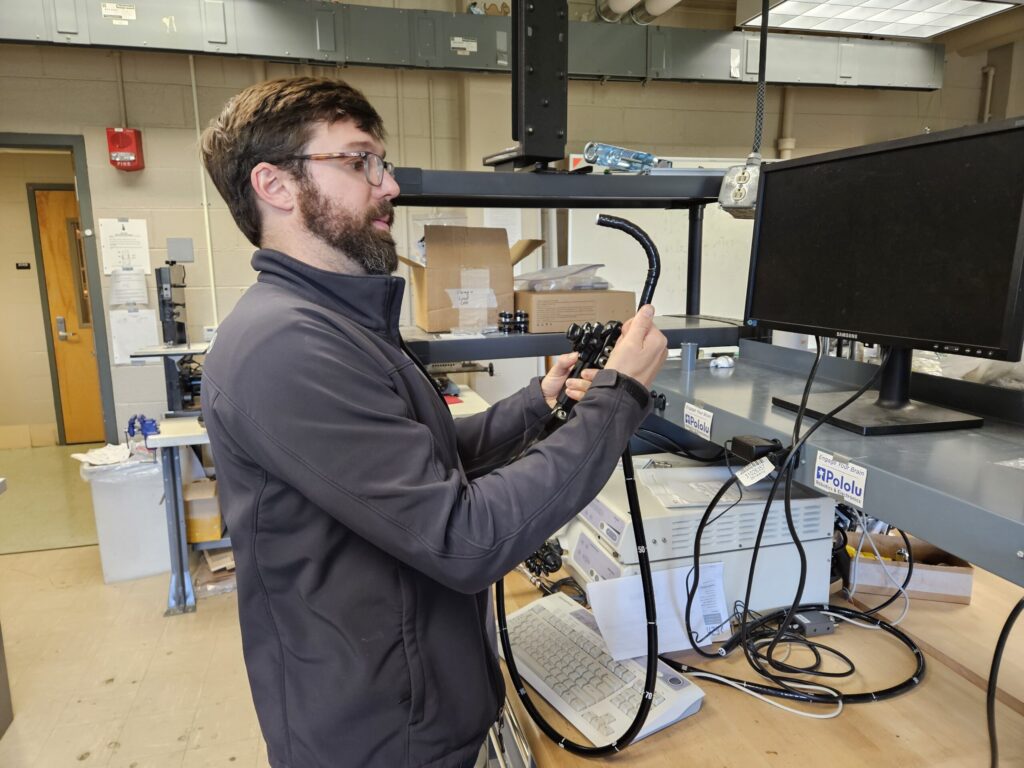
At a young age, Caleb Rucker knew he wanted to be an inventor. From building devices in the woods behind his childhood home to a general interest in math and science, he always dreamed he would one day invent something special.

Today, Rucker is an associate professor in the Department of Mechanical, Aerospace, and Biomedical Engineering at the University of Tennessee, Knoxville (UTK), and director of the REACH Lab, dedicated to making surgical procedures less invasive, safer, and more effective. He co-founded EndoTheia, a Nashville-based medical device company that developed a groundbreaking technology which radically improves minimally invasive endoscopic surgery. He serves as the startup’s Chief Science Officer.
Earlier this year, EndoTheia received a Breakthrough Device designation from the Food and Drug Administration (FDA). This designation allows EndoTheia to streamline the regulatory process and quickly provide healthcare providers and patients with solutions.
This designation is great. It enables us to expedite getting full approval from the FDA, and it attracts more interest in our work,” said Rucker. “Within five years, I hope we will have two or more products on the market.”

Before he arrived at UTK, Rucker completed his doctorate and served as a postdoctoral research associate at Vanderbilt University. At Vanderbilt, Rucker’s advisor was Robert (Bob) Webster, director of the MED Laboratory, who now serves as EndoTheia’s president.
In his lab, I got passionate about the work we were doing and the compelling connection to improving human life and health,” said Rucker. “Through my four years with Bob, I started to envision running a research program and teaching. It was daunting to think about being the person responsible for securing funding and mentoring students, but it’s daunting for everyone.”
Running the REACH Lab is one challenge, but deciding to commercialize the technology he developed in the lab was another beast entirely.

It’s always a big leap to go from the lab to a commercial device – it’s something you cannot do as an academic working alone,” said Rucker. “Finding good partnerships and mentorships in industry can help channel academic thinking into practical outcomes.”
Rucker is thankful for the mentorship of those around him who have been through similar commercialization processes before. With support from partners like the EndoTheia team and the University of Tennessee Research Foundation (UTRF), Rucker can focus on his area of expertise – generating new engineering knowledge and applications.
It’s been a privilege working with the EndoTheia team as they have developed their technology,” said UTRF President Maha Krishnamurthy. “Receiving Breakthrough Device designation from the FDA is a phenomenal achievement. EndoTheia’s technology, created at UTK, is paving the way for the future of diagnostic and therapeutic options for flexible endoscopy.”